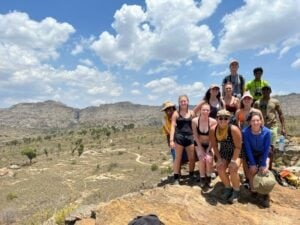Guiding Students to Successful Study Abroad Experiences
Studying abroad is a pivotal experience that can profoundly influence a student's academic and personal development. It offers unparalleled opportunities for cultural immersion, language acquisition, enriching your CV, and personal growth. However, the process of selecting and preparing for an appropriate study abroad program can be daunting both for students and study abroad advisors. Here’s a guide to help students navigate their study abroad journey and assist home university study abroad office staff in supporting their efforts.

Understanding Student Needs and Goals
The first step in the study abroad journey is understanding what students hope to achieve. Whether it's enhancing language skills, gaining international work experience, or studying a particular subject in-depth, clarifying these goals is essential.
For students:
- Reflect on your academic and personal objectives.
- Consider how studying abroad can align with your long-term career goals.
- Think about the type of cultural experience you want to have and what countries interest you.
For study abroad staff:
- Engage students in conversations about their goals.
- Provide resources and workshops that help students articulate their objectives.
- Use surveys or questionnaires to gather information on student interests and needs.
Researching Study Abroad Programs
With clear goals in mind, the next step is to explore study abroad programs that fit these objectives. There are thousands of programs available worldwide, each offering unique experiences and academic opportunities.
For students:
- Use online platforms like Abroad101 to research programs. These platforms offer valuable tools such as search filters and interactive maps to help you find the right fit.
- Read reviews from other students to gain insights into program quality and student experiences.
- Attend study abroad fairs and informational sessions at your university.
For study abroad staff:
- Familiarize yourself with various programs and destinations to provide informed guidance.
- Maintain a database of recommended programs and share this with students.
- Utilize platforms like Abroad101 (Linktree) to monitor student reviews and feedback, helping refine program recommendations.
Navigating the Application Process
Applying to study abroad programs can be a complex process involving multiple steps, including application forms, personal statements, and sometimes interviews.
For students:
- Start the application process early to ensure you meet all deadlines.
- Seek advice from study abroad advisors on crafting strong personal statements and essays.
- Ensure you have all necessary documentation, such as transcripts and letters of recommendation.
For study abroad staff:
- Offer workshops and one-on-one advising sessions to guide students through the application process.
- Provide checklists and timelines to help students stay organized.
- Review application materials and provide constructive feedback.
Preparing for the Experience
Once accepted into a program, preparation becomes key to a successful study abroad experience. This includes both practical preparations and mental readiness.
For students:
- Research your destination's culture, language, and customs.
- Attend pre-departure orientation sessions to understand what to expect.
- Arrange for housing, travel insurance, and any necessary visas or vaccinations.
For study abroad staff:
- Conduct pre-departure orientations that cover essential topics such as cultural adaptation, health and safety, and academic expectations.
- Encourage students to connect with alumni who have studied in the same location.
- Provide resources for learning basic language skills and cultural norms.
Supporting Students Abroad
Support doesn't end once students arrive at their destination. Continuous guidance is crucial for their well-being and success.
For students:
- Stay in contact with your university's study abroad office and reach out if you encounter any issues.
- Take advantage of local resources, such as international student offices or peer support groups.
- Embrace the experience fully by participating in cultural events and activities.
For study abroad staff:
- Maintain regular check-ins with students through email or virtual meetings.
- Create online communities where students can share experiences and support each other.
- Be prepared to assist with any emergencies or challenges that arise during the program.

Returning Home: Integration and Reflection
The study abroad journey continues even after students return home. Integration and reflection are vital for maximizing the benefits of their experience.
For students:
- Reflect on your experiences and consider how they have impacted your personal and academic goals.
- Share your insights with peers through presentations or written articles.
- Incorporate your new skills and perspectives into your studies and career planning.
For study abroad staff:
- Organize re-entry workshops to help students process their experiences.
- Encourage students to contribute to the study abroad community by sharing their stories.
- Collect feedback to continually improve support services and program offerings.
Conclusion
Studying abroad is a transformative experience that requires careful planning and support. By understanding student needs, researching programs, navigating applications, preparing adequately, and providing ongoing support, both students and study abroad office staff can ensure successful and enriching international experiences. Platforms like Abroad101 play an integral role in this process by offering tools and resources that facilitate informed decision-making and effective program management.
For more information on study abroad programs and support services, visit Abroad101 and explore their wealth of resources to assist in your study abroad journey.